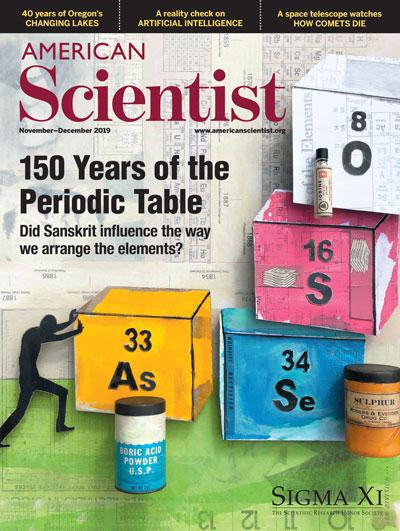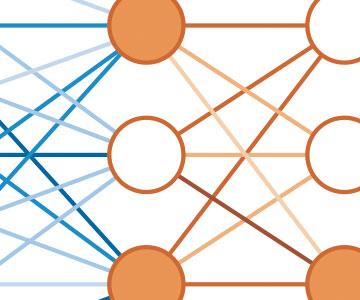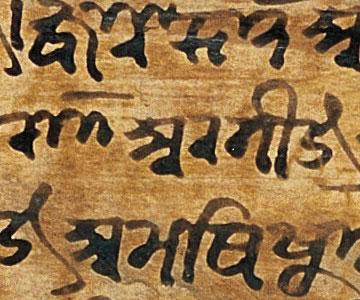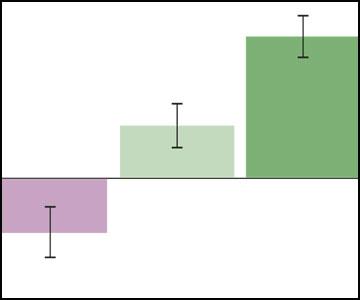Magazine
November-December 2019

November-December 2019
Volume: 107 Number: 6
In 1869, 150 years ago, chemist Dmitri Ivanovich Mendeleev developed his first version of the periodic table of the elements. Mendeleev wasn’t the only scientist trying to organize the elements, and many scientists have contributed to the periodic table since (in the cover background are Lothar Meyer, Ida Noddack, and John Newlands). But as Abhik Ghosh and Paul Kiparsky note in Perspective, the 150th anniversary is worth celebrating because of Mendeleev's appreciation of the elements’ periodic properties; he left gaps in his table for elements not discovered yet. Mendeleev used Sanskrit names of numbers to mark these gaps. Why not Latin, or Greek, or German? In “The Grammar of the Elements,” Ghosh and Kiparsky make a compelling case that Mendeleev was exposed to Sanskrit and the grammar of that ancient language could have influenced his organizational thinking about the periodic table. (Artwork by Wayne Brezinka.)
In This Issue
- Art
- Astronomy
- Biology
- Chemistry
- Communications
- Computer
- Economics
- Engineering
- Environment
- Ethics
- Physics
- Policy
- Psychology
- Sociology
- Technology
Expanding Consciousness
Lars Chittka, Catherine Wilson
Psychology
Bees and other insects show signs of possessing complex self-awareness, but if the scope of conscious beings widens, where will it end?
Comets Are Not Forever
Michael Werner, Peter Eisenhardt
Astronomy
These time capsules of the early Solar System can break apart during their journey around the Sun, releasing water and dust.












